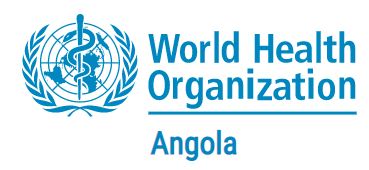With the severe cholera outbreak in Angola, residents are understandably alarmed. “What can we do to avoid getting sick?” asked Maesso Damião, a resident of Zaire Province, to World Health Organization (WHO) public health experts who recently visited the province. The team responded with simple advice on food hygiene, water treatment, and seeking early medical treatment. “This information can save our lives,” said Damião.
In Angola, more than 25,000 cases and almost 800 deaths have been reported since the beginning of 2025 when the outbreak was declared. In Zaire Province, nearly 174 cases have been reported, with a very high case fatality rate of 5.7% as of 13 June 2025. Considering that 1% is the benchmark to indicate early and adequate treatment, the urgency to control the cholera outbreak is clear.
During its week-long visit to Zaire, the multidisciplinary WHO team visited the municipalities of Soyo, Nzeto, and M’banza Kongo, where cholera has affected vulnerable communities, including fisherfolk and informal traders. The team’s assessment revealed the challenges facing the response: treatment centres without adequate beds, shortages of materials, underreporting of cases, lack of sanitation, and difficulties in preparing chlorine solutions.
The WHO team supported the improvement of the quality of care and biosafety (safe working practices when handling infectious agents) in four cholera treatment centres, the improvement of water safety, and distributed essential supplies and safe drinking water. They also trained 140 health professionals in epidemiological surveillance, clinical management, and infection prevention and control.
“WHO’s support has enabled us to ensure crucial conditions to contain the outbreak, highlighting the importance of community involvement in disease prevention. This will allow us to adopt crucial measures for the future, prevent diseases and save lives,” said Zaire’s Provincial Health Director, Dr João Bernardo.
Collaboration with community leaders is essential to strengthen the response at the local level. More than 700 people took part in awareness-raising sessions at churches, beaches, and town squares.
“Cholera is not only a medical emergency, but also an emergency of sanitation, treated water, information, dignity, and social justice. We must continue to work together to eliminate cholera and protect the population,” says Dr Raquel Medialdea-Carrera, WHO epidemiologist from WHO’s Pandemic hub in Berlin and a member of the WHO team currently working on the ground in Angola.
Dr Indrajit Hazarika, WHO Representative in Angola, reinforced the importance of this integrated approach: “While the cholera outbreak is a cause for great concern, it also represents a critical opportunity for us to strengthen cooperation and the health systems and build more robust emergency preparedness. Our common goal is a healthier and more resilient Angola, and to that end, we hope we can count on everyone’s support.”
Distributed by APO Group on behalf of World Health Organization (WHO) – Angola.



